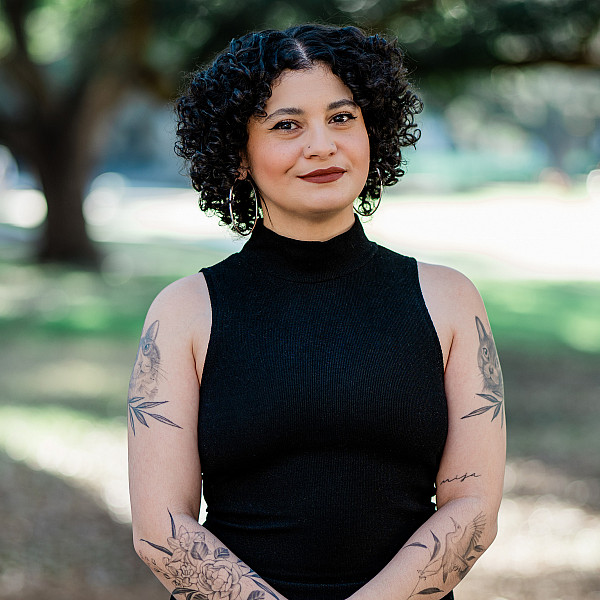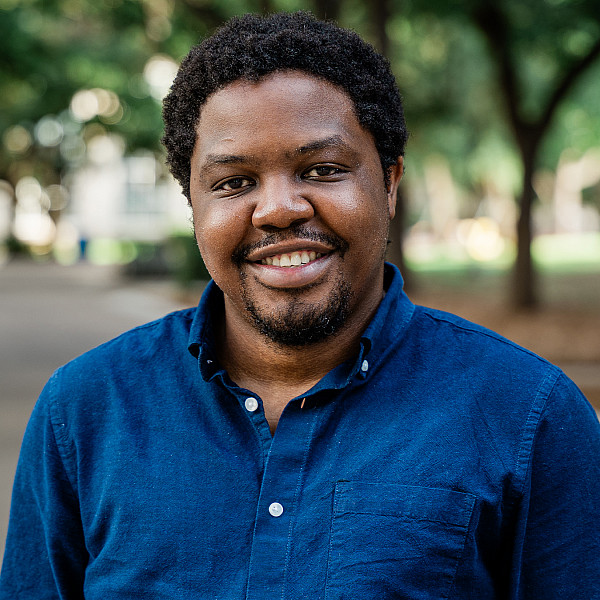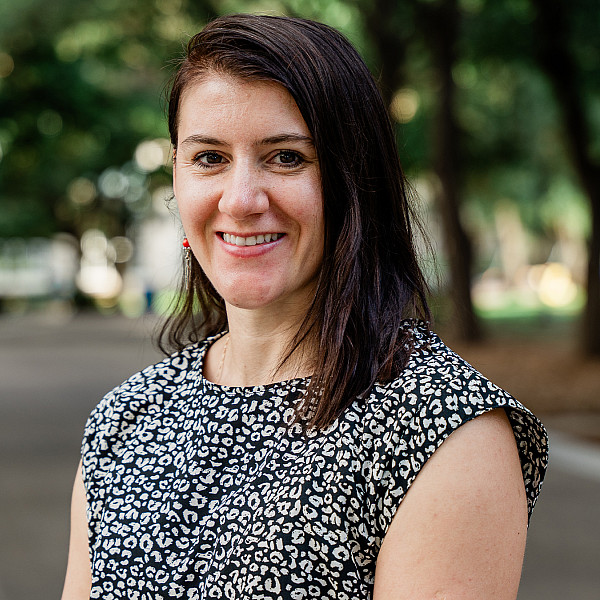News
Meet Our World-Class Faculty: Amanda Hernandez
A conversation with Assistant Professor of Sociology Amanda Hernandez.
April 16, 2024
April 16, 2024
Open gallery

Could you introduce yourself and tell me a bit about your background?
I was a “non-traditional” college student, which I always find funny. I waited six years between graduating high school and starting college, and I had my son during that time. They counted me as non-traditional because of my age and because I had a child, but statistically, in the United States, the majority of college students are non-traditional.
I went to San Antonio College and I didn’t know what I was doing. No one in my family had gone to college and I kind of went in with the idea that I would just get a two-year certificate in counseling. But I really enjoyed the classes and I had great mentors who encouraged me to transfer to a four-year school and apply for the McNair Scholars Program.
I transferred to the University of Texas at San Antonio and majored in women’s studies and minored in sociology. I got into the McNair Scholars Program and it was incredible. It’s a federally funded program for people who are underrepresented in the professoriate. They do mentoring and get you ready to go to grad school. I did my graduate work at Baylor University, which has the most robust sociology of religion program.
What sparked your interest in sociology, and why did you want to become a professor?
My personal narrative fits into why I was interested in sociology. I grew up in a really big Mexican-American family. We were not financially well off, and we were religious. As I got older, I started thinking about the ways that impacted my life. That impacted my decision to get married really young, to have a kid really young, and to not go to college. When I ended up divorced and a single mom, and in college, I wondered, “How did I get here?” Sociology really gave me answers, and helped me internalize that there was nothing wrong with me. I wasn’t deficient in some way because that’s how my life had panned out at that point.
I had amazing undergrad mentors who always told me when they saw potential in me. They encouraged me to do this job. I didn’t really have anyone telling me not to or that I wasn’t capable.
Are you currently working on any research, if so, what is it?
My current big project is a book from my dissertation that will hopefully be coming out at the end of this calendar year. It is tentatively titled, “The Intersectional Lives of Christian Women: Feminism, Feminists, and Faith.” There’s this popular narrative that feminism and religion don’t go together. My book is interrogating that idea. For who are they antithetical? What I argue is that when we think of Christianity in the US, we’re often thinking of white Christianity and when we’re thinking of feminism, we’re often thinking of white feminism. They’re contradictory in that space, but there are lots of different ways to think about each of those identities. They are not contradictory for everybody.
How did you hear about Southwestern, and why did you want to work here?
I first heard about Southwestern when I saw the job opening. When I read the job ad, I thought, “That’s me. That’s what I do.” The opening was a thematic hire for an intersectional scholar who can teach in race and ethnicity studies, feminist studies, and/or border studies. At the time, I was a visiting professor at a different university, so I didn’t know what I was going to do. And then I had my Zoom interviews and campus visit, and I thought, “If I get an offer from Southwestern, I’m coming.” All the faculty and all the students I interacted with were so wonderful. I just knew it was someplace that I would be able to flourish as a teacher scholar.
I absolutely have to shout out the other thematic hires. I like all of them so much. They’ve been such a great moral and emotional support as all of us adjust to being tenure track. I am very happy for them, and us as a collective.
What classes do you teach?
I am currently teaching Introduction to Sociology and Sociological Theory.
What are you looking forward to teaching in the coming semesters?
I’m looking forward to both classes I’m teaching in the fall. The first one is sociological methods and that is a quantitative methods course. I’m really looking forward to it because I think a lot of people who are interested in the social sciences are very math-phobic. It’s so much fun to watch students grow over the course. They’ll be really hesitant about engaging in quantitative analysis and really not thinking they can code or interpret output. Then at the end of the semester, they put together a whole project. I’m always so proud of them, and they’re so proud of themselves.
I’m also re-teaching a course that I taught last fall when I got here called “Christianity and Whiteness in US Society,” which is very fun, because it’s all my research interests, but it’s also feisty. There are ideas in that class that some people are uncomfortable with or haven’t really spent a lot of time interrogating. To add on to that, it’s an election year. I am excited to teach it because I think there’s going to be a lot of people who want to know how to think about what is happening. I’m hoping that a class like that can give them some language and some community for thinking about it.
What do you enjoy doing outside of work?
I really enjoy reading. I have my “fun read” pile and my “work read” pile. There is some intermingling of the piles, but I do a lot of reading. I also enjoy being outside a lot. I recently have taken up running. I nap with my cats. And I enjoy sitting on a patio with some sort of iced beverage.
What is something students would be surprised to learn about you?
From when I was 18 to when I was 24 or 25, I was a karaoke DJ. It makes people think I love doing karaoke, which is true, but I have a lot of very strong opinions about karaoke because of that.

















